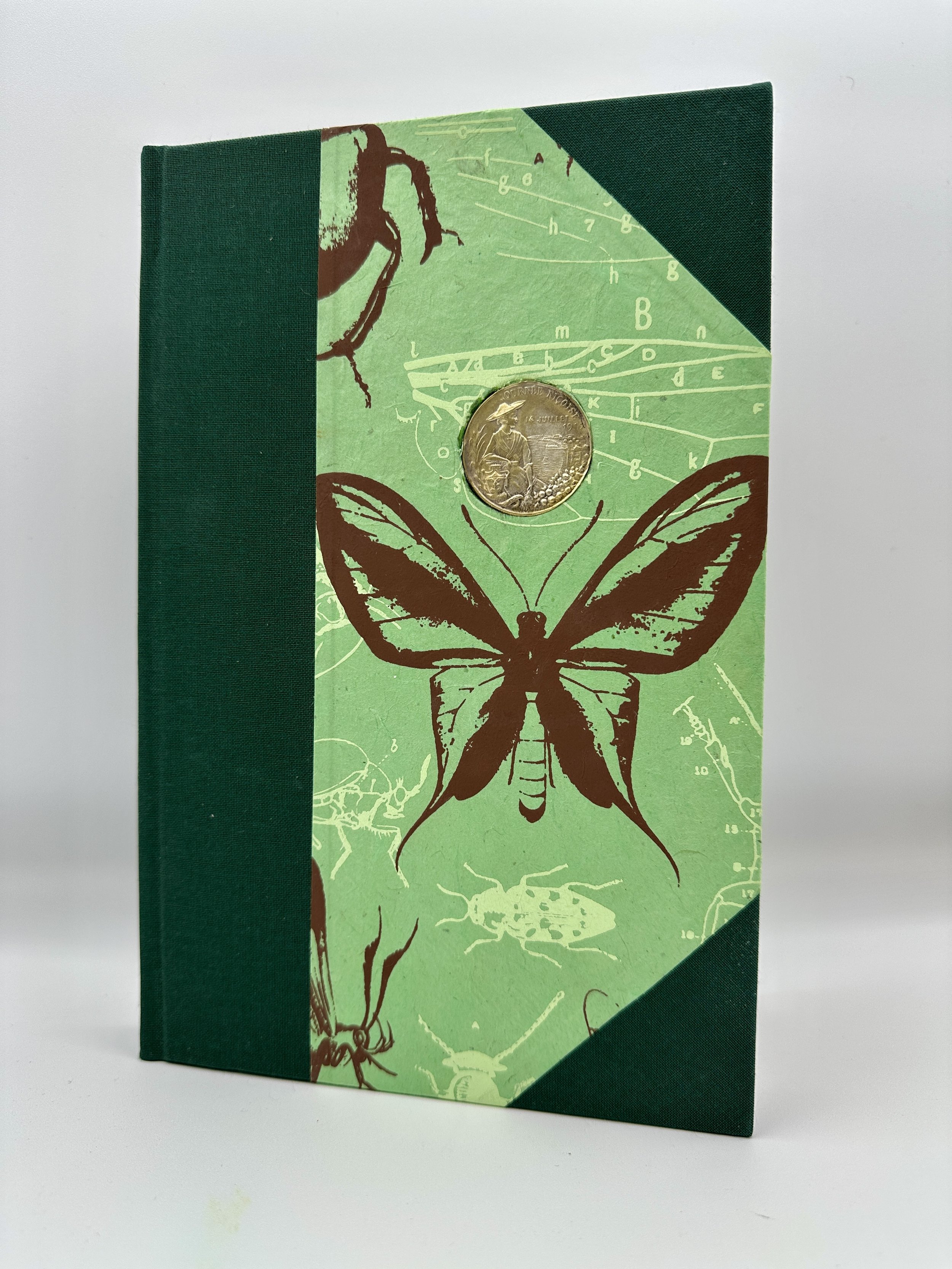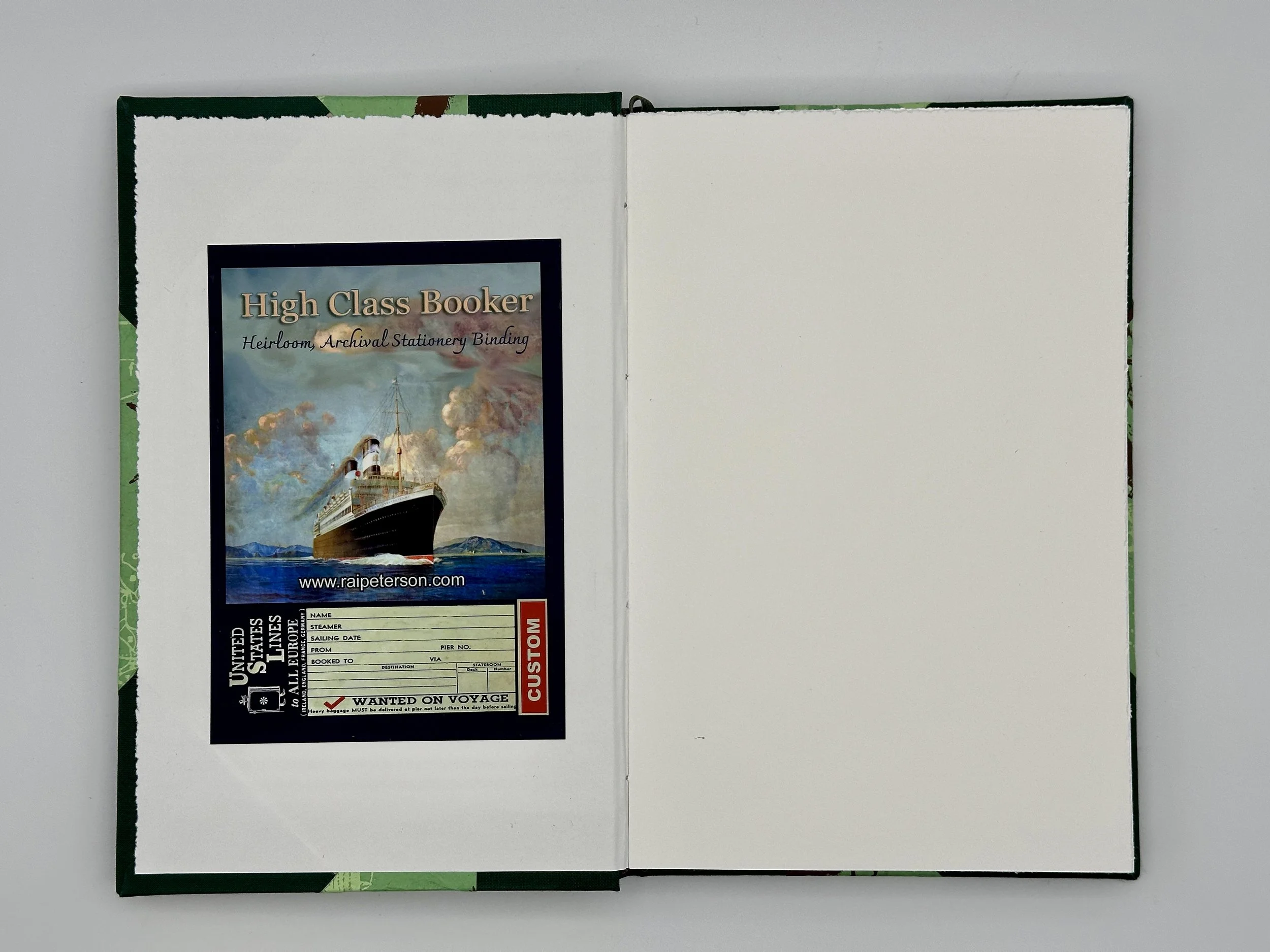Victory Garden
This archival, hand-sewn journal/sketchbook is made from 80 gsm Mohawk Superfine archival paper stitched with Irish linen thread in the linked pattern that was developed by the ancient Copts. This stitch allows the book to lay open easily at any page.
This book’s endbands and bookmark are French goatskin. Its boards are wrapped scientific-themed printed Lokta paper from Cognitive Surplus. The book is half-clothed in Brillianta book cloth from the Netherlands.
The talisman in this book is a 1915 French lapel pin from Bastille Day, marking the end of World War I and commemorating Victory Gardens. Most of the agricultural workers in Europe were called up into service, and so gardens tended by women fed the nation.
This archival, hand-sewn journal/sketchbook is made from 80 gsm Mohawk Superfine archival paper stitched with Irish linen thread in the linked pattern that was developed by the ancient Copts. This stitch allows the book to lay open easily at any page.
This book’s endbands and bookmark are French goatskin. Its boards are wrapped scientific-themed printed Lokta paper from Cognitive Surplus. The book is half-clothed in Brillianta book cloth from the Netherlands.
The talisman in this book is a 1915 French lapel pin from Bastille Day, marking the end of World War I and commemorating Victory Gardens. Most of the agricultural workers in Europe were called up into service, and so gardens tended by women fed the nation.
This archival, hand-sewn journal/sketchbook is made from 80 gsm Mohawk Superfine archival paper stitched with Irish linen thread in the linked pattern that was developed by the ancient Copts. This stitch allows the book to lay open easily at any page.
This book’s endbands and bookmark are French goatskin. Its boards are wrapped scientific-themed printed Lokta paper from Cognitive Surplus. The book is half-clothed in Brillianta book cloth from the Netherlands.
The talisman in this book is a 1915 French lapel pin from Bastille Day, marking the end of World War I and commemorating Victory Gardens. Most of the agricultural workers in Europe were called up into service, and so gardens tended by women fed the nation.










